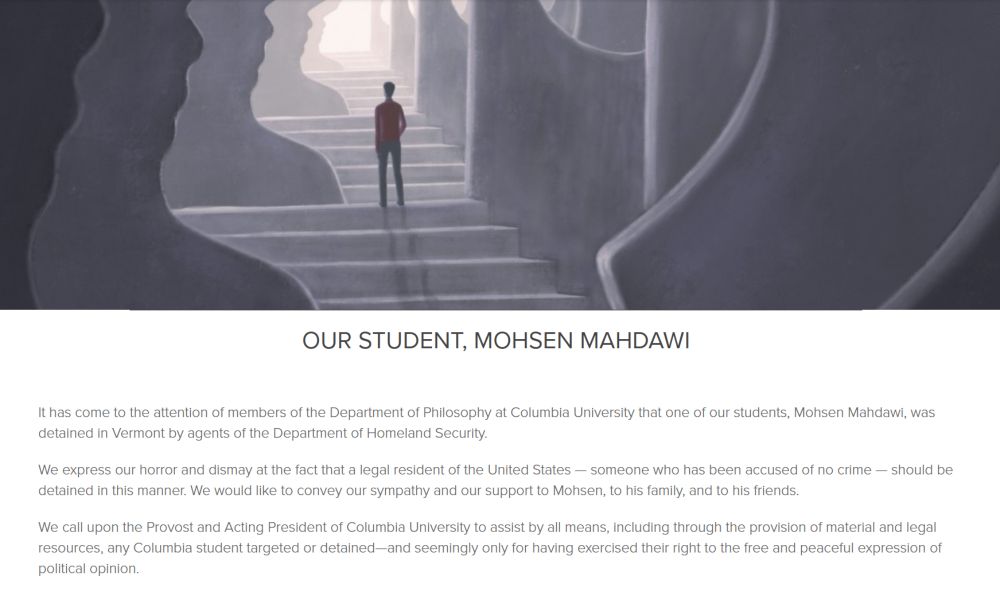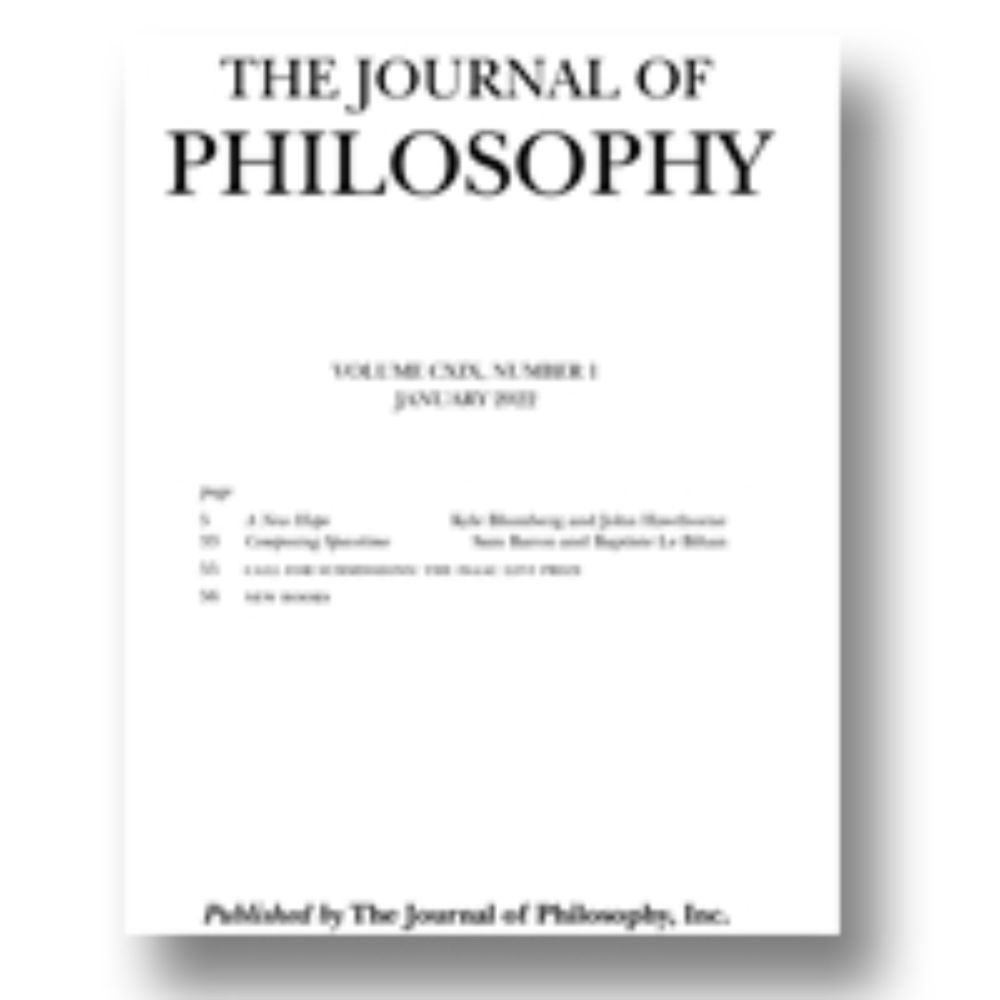The Journal of Philosophy
@jrnlofphil.bsky.social
670 followers
390 following
35 posts
One of the world's top academic philosophy journals, JPhil is published monthly by the non-profit organization, Journal of Philosophy, Inc.
Posts
Media
Videos
Starter Packs
Reposted by The Journal of Philosophy
Reposted by The Journal of Philosophy
Justin Weinberg
@dailynous.com
· Apr 16

Columbia Philosophy Statement on Mahdawi / Fundraiser - Daily Nous
The Department of Philosophy at Columbia University has issued a statement about Mohsen Mahdawi, the philosophy major taken by Immigration and Customs Enforcement (ICE) this past Monday. The statement...
dailynous.com









